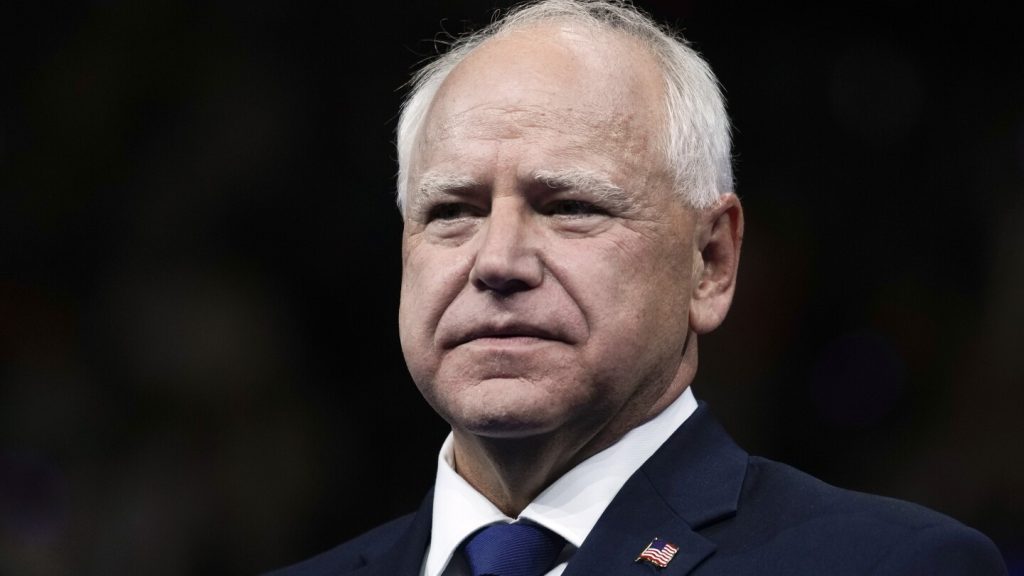The controversy surrounding Minnesota Governor Tim Walz’s military record has sparked backlash from Republicans, particularly Ohio Senator JD Vance. Walz, the Democratic candidate for vice president, came under scrutiny after comments he made in a 2018 video where he referred to “weapons of war that I carried in war.” Critics argue that the comment implies that Walz served in a combat zone, despite his 24 years in various Army National Guard units without deployment to a combat zone. The issue arose following Vice President Kamala Harris’s announcement of Walz as her running mate.
A spokesperson for the Harris-Walz campaign, Lauren Hitt, addressed the criticism by stating that Walz misspoke in the 2018 video. Hitt emphasized that Walz never intended to undermine or insult the service of any American and thanked Senator Vance for his service to the country. Hitt clarified that Walz’s comments were in the context of advocating against the presence of “weapons of war” in civilian settings, with the belief that only properly trained military personnel should have access to such weapons. The statement also took a jab at President Donald Trump and Senator Vance, accusing them of prioritizing the gun lobby over the safety of children.
JD Vance, the Republican vice presidential nominee, enlisted in the Marine Corps after high school and served as a combat correspondent for four years, including a deployment to Iraq in 2005. While Vance’s military experience is well-documented, the focus remains on challenging the credibility of Governor Walz’s comments in the 2018 video. The controversy highlights the political tension surrounding issues of gun control and national security, with both sides using the military service of candidates to bolster their positions on the matter.
The debate over Governor Tim Walz’s military record comes at a pivotal moment in the presidential campaign, with the vice presidential candidates scrutinizing each other’s backgrounds to gain an edge in the race. The clash between Walz and Vance reflects broader divisions within the electorate on matters of gun policy, military service, and national defense. The controversy has also drawn attention to the role of social media in circulating and amplifying political narratives that can influence voter perceptions and shape public discourse.
As the election draws nearer, the focus on Governor Tim Walz’s military statements serves as a reminder of the scrutiny that comes with running for public office, particularly on issues related to national security and military service. The reaction from both sides of the political spectrum underscores the high stakes of the campaign and the efforts to discredit opponents through attacks on their credibility. Ultimately, the controversy surrounding Walz’s remarks underscores the challenges and complexities of navigating the political landscape, where missteps can have significant consequences in shaping public opinion and influencing electoral outcomes.


